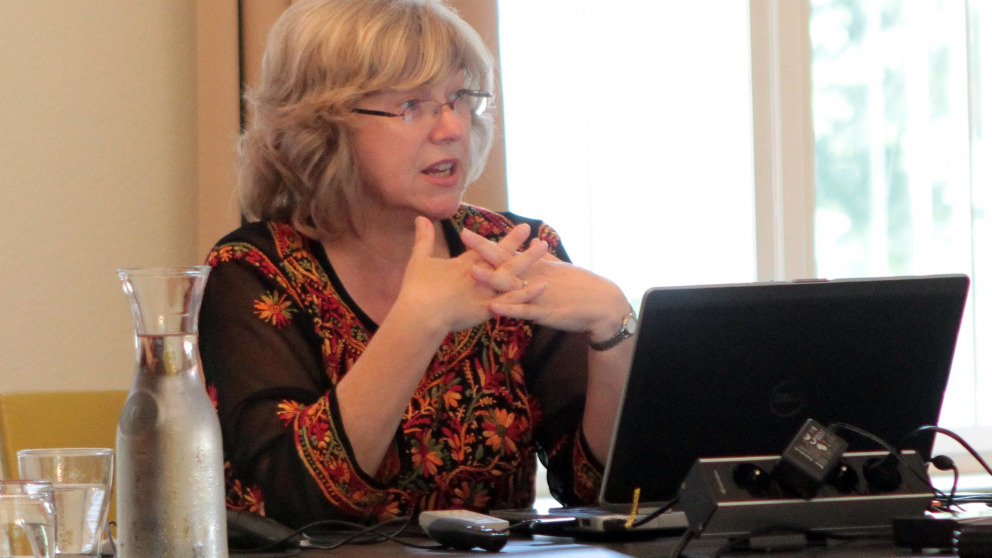Headline:
Responsibilities without Rights: Ruth Meinzen-Dick Addresses Natural Resource Management Policies

The commons are a fundamental safety net for many rural families. However, communities all over the world face involuntary loss of commons due to increasing pressure on natural resources, land grabbing, urbanisation, and user conflicts. So, how can the rights of these communities be secured? Ruth Meinzen-Dick, Senior Research Fellow at the International Food Policy Research Institute (IFPRI) in Washington advocates collective action as a way to secure individual or communal property rights to natural resources, which can strengthen rural people’s livelihoods. In collective action, a group acts together to form a voluntary institution. Meinzen-Dick, who has developed a research framework on the prerequisites for community-based natural resource management, emphasised these points during a public talk on “Collective Action and Property Rights for Natural Resource Management” at the Institute for Advanced Sustainability Studies (IASS).
The role of government in decentralising power is key to creating effective authorities at regional level. However, “often the responsibilities are handed down but not the rights”, criticised the researcher. In most cases, ownership and decision-making power are shared between governmental institutions, local elites and customary leaders, whose claims to authority are not always legitimate and respected. Meinzen-Dick commented that “power has been missing in not only the commons but also the international development debate.” Inclusive systems in which locals are not undermined and have a voice in the design of policy and resource management systems are an effective way to strengthen people’s livelihoods. Both the adequate access and sustainable use of natural resources are safeguarded.
To make the division of rights between local communities, user groups and state authorities clear, Meinzen-Dick put forward the idea of ascribing bundles of rights to groups and individuals. She acknowledged that states should also recognise communities as legal entities with a legal right to tenure. The presentation was followed by a lively discussion on the applicability of the framework in complex settings, for example, in the case of power imbalances and overlapping systems of formal and informal tenure rights. Participants also discussed the issue of assigning property rights to commons, resources that are characterised by collective use, management and ownership. During the discussion, Meinzen-Dick emphasised that the legal recognition of tenure rights serves not only as a safety net for livelihood security in rural areas, but also encourages long-term planning and sustainable resource use.
As part of the work on land and soil governance, the IASS takes these considerations further in its work on the Technical Guide on Tenure Rights Related to Commons. The talk was followed by a two-day workshop on “Strategic Guidance to Strengthen the Commons”, where Meinzen-Dick and other members of the Sounding Board of the Technical Guide met to discuss ways to recognise, protect and support the commons by using the Voluntary Guidelines on the Responsible Governance of Tenure of Land, Fisheries and Forests (VGGT).
Photo: (c) IASS
